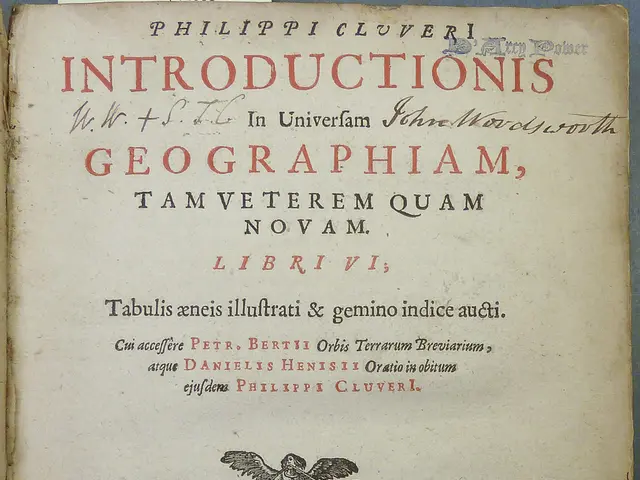Genetic pattern-detecting knowledge management system unveiled
In a pioneering development, Accenture Labs has introduced a knowledge-management system designed to bolster cross-project knowledge sharing and innovation, particularly in the pharmaceutical industry. The system, which harnesses AI and GenAI technologies for advanced data analysis, has proven to be a trailblazer in pharmaceutical research.
Accenture's Technology Labs' managing director, Michael Redding, believes the system could pique the interest of Accenture's clients, extending beyond the company itself and potentially benefiting Accenture's scholarly pursuits in the pharmaceutical industry.
The system's unique ability to discern connections between seemingly unrelated conditions could spark breakthroughs in pharmaceutical research. For instance, it was employed to identify similarities between gene sequences in patients with Alzheimer's disease and those with alcohol problems. Remarkably, it also unearthed a link between Lou Gehrig's disease and genital diseases.
Moreover, the system has since been deployed to spot a relationship between heart failure and leukaemia. These discoveries highlight the system's potential for enhancing cross-project knowledge sharing and innovation in the pharmaceutical sector.
The system is founded on a taxonomy to categorise projects, linking projects with fundamental similarities, even if they are not superficially related. This approach has been particularly effective in the pharmaceuticals industry, where it has demonstrated its potential for drawing non-obvious links between items.
The development of this system has also yielded significant cost savings for Accenture. Building the systems allowed Accenture to decommission numerous internal databases, reducing annual IT costs by over $1 million.
With tens of thousands of consultants globally, Accenture has a large pool of talent working on similar projects simultaneously. The system provides a platform for these consultants to share their findings and collaborate more effectively, fostering innovation and accelerating progress in pharmaceutical research.
Michael Redding explains that there is a real chance that drugs used to treat one condition could have beneficial uses for conditions that they were never previously considered for. The system's ability to make unseen connections has potential for discovering new uses for existing drugs, opening up new avenues for treatment and potentially revolutionising the pharmaceutical industry.
In conclusion, Accenture's innovative knowledge-management system is poised to transform the pharmaceutical sector by facilitating cross-project knowledge sharing, fostering collaboration, and driving innovation. The system's ability to find connections between seemingly unrelated conditions could lead to breakthroughs in pharmaceutical research and the development of new treatments for various diseases.
Read also:
- Vibrant, Striped Insects Specializing in Carpenter Work: Carpenter Bees
- Unraveling the Intricate Interplay of Attraction and Repulsion: A Delve into the Mysterious Magnetic Forces
- Addressing Short-term Names in WoRMS: Interim Methods for the Taxonomic Obstacle
- Mystery of the celestial dance between the twinkle and intellect








